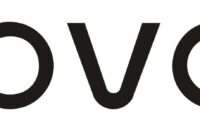SILVER SPRING, Md., June 3, 2021 /PRNewswire/ — The U.S. Food and Drug Administration is alerting health care providers to no longer implant end-stage heart failure patients with Medtronic’s Heartware Ventricular Assist Device (HVAD) System due to a growing body of observational clinical comparisons that demonstrates a higher frequency of neurological adverse events and mortality associated with the system when compared to other commercially available devices, as well as complaints that the internal pump may delay or fail to restart.
Medtronic is stopping the distribution and sale of the HVAD System and has issued an Urgent Medical Device Communication Notification Letter requesting physicians to stop new implants of the device. This action comes after the company received over 100 complaints involving delay or failure to restart of the HVAD pump, including reports of 14 patient deaths and 13 cases where an explant was necessary. According to Medtronic, there are approximately 2,000 patients in the U.S. implanted with the device and 4,000 worldwide.
The FDA is advising health care providers to follow the instructions provided in the Medtronic Notification Letter, including stopping new implants of the Medtronic HVAD System; using an alternative, such as the Abbott Heartmate 3 Left Ventricular Assist System (LVAS); and advising patients who have the HVAD System to continue normal use of device components and to contact the company for replacement items, such as controllers, batteries, AC/DC adapters and carrying case. In addition, Medtronic’s Notification Letter states that providers should inform patients that elective device explant is not recommended, and decisions about removing the HVAD pump should be made on a case-by-case basis, with careful consideration of the patient’s clinical condition and surgical risks.
“The FDA’s highest priority is patient health and safety. We have been carefully monitoring the adverse events associated with this device and support its removal from the marketplace. The FDA is working closely with both Medtronic and Abbott to ensure patient care is optimized during this transition period and that there is an adequate supply of devices available to provide this patient population with options for end-stage heart failure treatment,“ said Bram Zuckerman, M.D., director of the Office of Cardiovascular Devices in the FDA’s Center for Devices and Radiological Health. “The FDA’s alert is designed to quickly inform health care providers of this critical information so that patients with the current HVAD System continue to receive appropriate care and management. The FDA is committed to facilitating the development of safe and effective devices that can provide patients living with the devastating condition of end-stage heart failure with the opportunity for improved quality of life.“
The Medtronic HVAD System was first approved for commercial use in the U.S. in November 2012. It is currently approved as a bridge to heart transplantation in patients who are at risk of death from end-stage left ventricular heart failure, for heart tissue recovery and as destination therapy in patients for whom a heart transplant is not planned. At the time of approval, the HVAD System was compared to another commercially approved left ventricular assist device, and it was determined that the data supported that the probable benefits of the HVAD System outweighed the probable risks. The device is used to treat patients with end-stage heart failure who have not responded to medical management, and the approved HVAD System labeling includes a list of all possible risks associated with the device.
Medtronic’s decision to stop the sale and distribution of the HVAD follows the company’s voluntary recall of a subset of the HVAD pumps in December 2020. The FDA will continue to monitor adverse events associated with the HVAD System and keep health care providers and the public informed as new or additional information becomes available.
The FDA encourages health care professionals and patients to report adverse events or safety problems with the Medtronic HVAD System to FDA’s MedWatch Adverse Event Reporting program.
Additional Resources
Media Contact: Shirley Simson, 202-597-4230
Consumer Inquiries: Email, 888-INFO-FDA
The FDA, an agency within the U.S. Department of Health and Human Services, protects the public health by assuring the safety, effectiveness, and security of human and veterinary drugs, vaccines and other biological products for human use, and medical devices. The agency also is responsible for the safety and security of our nation’s food supply, cosmetics, dietary supplements, products that give off electronic radiation, and for regulating tobacco products.
SOURCE U.S. Food and Drug Administration






